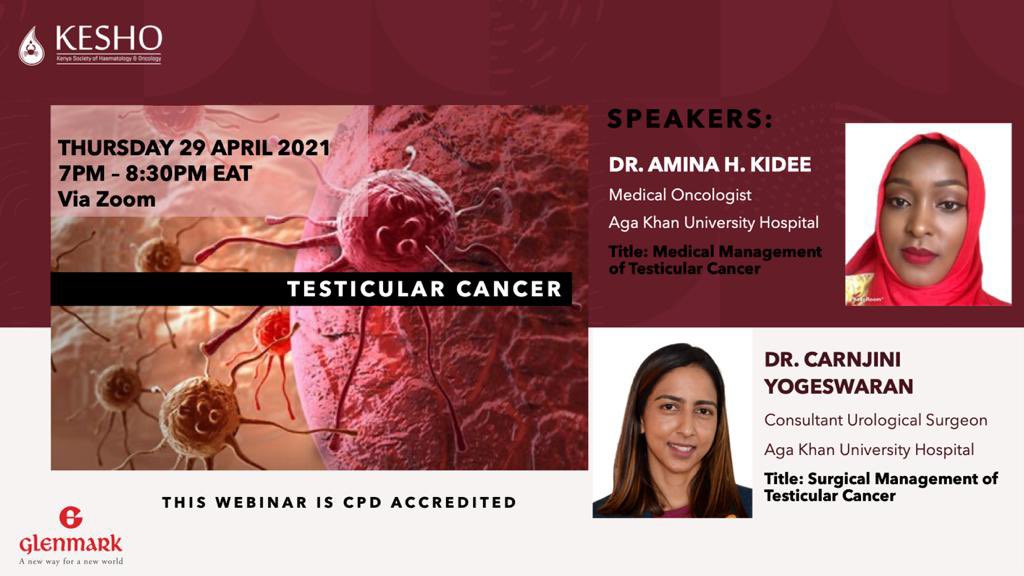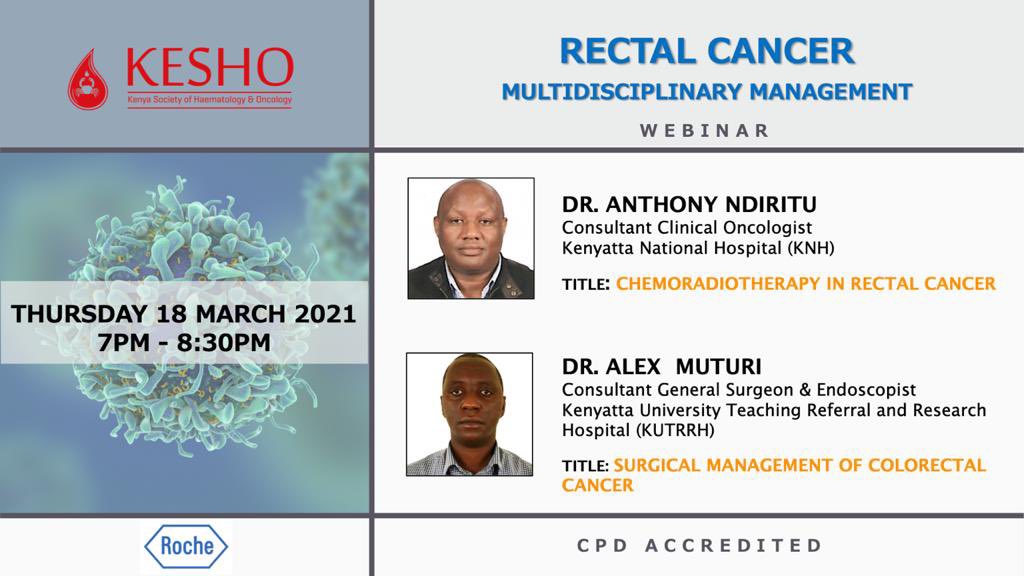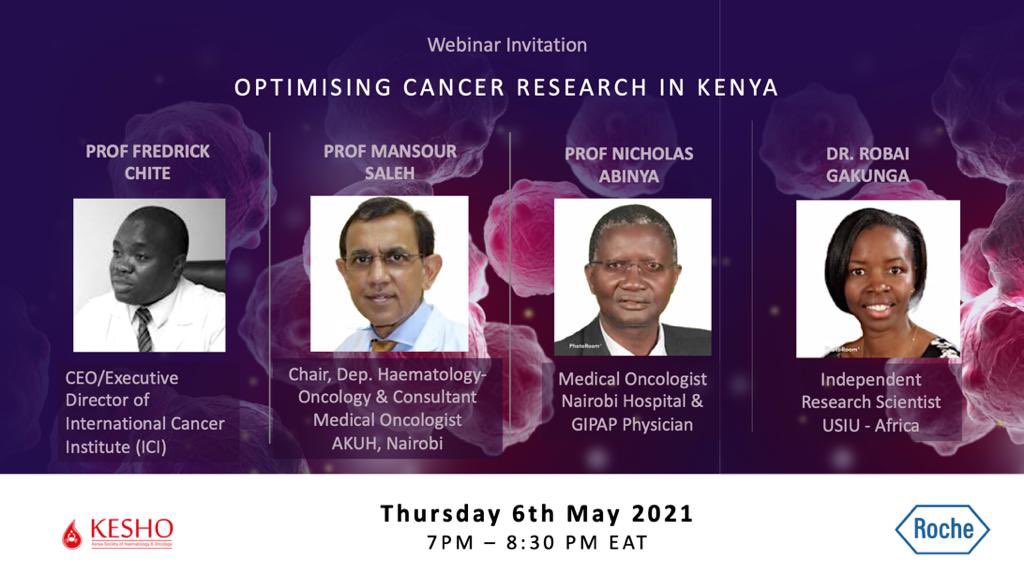
- This event has passed.
Testicular Cancer

Moderator: Peter Oyiro, Medical Oncologist Kenyatta National Hospital Teaching and Referral Hospital
Sponsor: Glenmark
Presenters:
- Dr. Amina H. Kidee, Medical Oncologist Aga Khan University Hospital
- Dr. Carnjini Yogeswaran, Consultant Urological Surgeon, Aga Khan University Hospital
Testicular cancer (TC) accounts for less than 1% of adult neoplasms and 5% of urological tumors. It’s the most commonly diagnosed cancer in young men (20-34 years), and the incidence is increasing in industrialized countries., but there is a need for local data to determine incidence in Africa. It is predicted that the survival rate in Kenya is low since the disease is not diagnosed early. The risk factors for TC oncogenesis include cryptorchidism, history of subfertility, contralateral history of testicular cancer, history of germ cell neoplasm in situ, family history of TC, race, age, and HIV. Individuals at high risk should be informed about the importance of physical self-examination. WHO classification of TC is based on the tumor origin, and the presentation may be localized or disseminated. Diagnosis is by history, examination, imaging, and serum tumor markers used for prognosis and staging. Transcrotal ultrasound with Doppler is performed to confirm a testicular mass, to determine whether a mass is intra or extra testicular, and to explore the contralateral testis. Transscrotal biopsies of the testes should not be performed because of the risk of tumor cells seeding of the inguinal and pelvic lymphatic drainage. The biopsy is also of limited value because testicular germ cell tumors are heterogeneous. Management of the disease requires an integrated multidisciplinary team (MDT). Removal of the entire organ is necessary to properly identify the histologic type(s) present and to select the appropriate therapy. Radical inguinal Orchidectomy is the standard of care and involves the division of the spermatic cord at the internal inguinal ring. The scrotal approach should be avoided. Chemotherapy should be initiated prior to orchidectomy where applicable, to control the disease and stabilize the patient. Testis sparing surgery aims to preserve fertility and hormonal functions. Patients should be counseled and be informed of the risk of local recurrence which is 8%. The testicular prosthesis should be offered to all patients undergoing unilateral or bilateral orchidectomy. It can be inserted at orchidectomy or subsequently. Contralateral testicular biopsy should be offered to high-risk patients. Semen abnormalities occur in 24-50% of TC patients even prior to orchidectomy. Additionally, chemotherapy and radiotherapy can impair fertility. Semen preservation by sperm banking (cryopreservation) should be offered to all patients.
Webinar Recording

